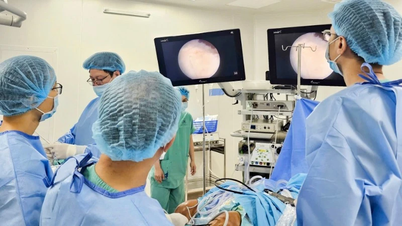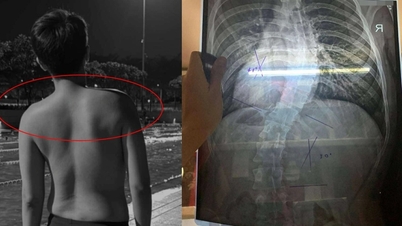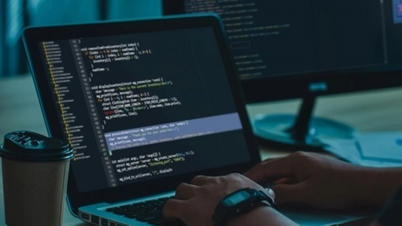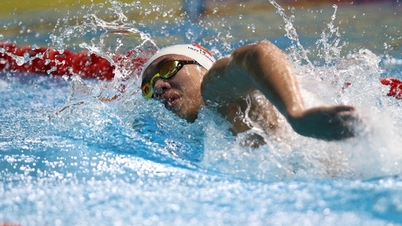 |
| A 10-20 minute nap is a simple way to help your brain recover. (Source: Times of India) |
Short nap - "recharge" mid-day
A 10-20 minute nap is what scientists call a "power nap" - a short sleep that helps improve work performance, increase concentration and reduce stress.
| Related news |
 Important notes on naps for people over 50 years old Important notes on naps for people over 50 years old |
According to research by the National Aeronautics and Space Administration (NASA) on pilots and flight controllers, a 20-minute nap improves work performance by 34% and alertness by 100%.
Dr. Sara Mednick, a neuroscientist at the University of California (USA), author of Take a Nap! Change Your Life, said: "Taking a short nap is a simple and effective way to restore the brain.
It does not disrupt nighttime sleep, but on the contrary improves memory and learning ability."
Scientifically proven benefits
Increase mental performance and alertness
Research published in the Journal of Sleep Research (2019) showed that people who took a 10-20 minute nap had significantly higher reflex performance and alertness than those who did not nap.
Improve mood and reduce stress
According to the National Sleep Foundation (NSF), a short nap helps reduce the hormone cortisol - the main cause of stress. It also regulates emotions, especially effective for people working in high-pressure environments.
Enhance memory and learning ability
A study by Saarland University (Germany) published in the journal Neurobiology of Learning and Memory (2015) showed that a 20-minute nap helps improve short-term memory and immediate memory ability.
Good for the heart
A study by the University of Lausanne (Switzerland) in BMJ Heart (2019) showed that napping 1-2 times a week reduces the risk of cardiovascular disease by 48%, including heart attack and stroke.
How to take a nap properly?
According to recommendations from experts at Mayo Clinic (USA):
- Ideal time: 10-20 minutes to avoid falling into sleep inertia, which causes fatigue after waking up.
- Time: Around 1pm-3pm is most suitable. Napping too late can affect night sleep.
- Space: Sleep in a quiet, airy place. You can use a blindfold or noise-canceling headphones to help you fall asleep easily.
Dr. Matthew Walker, a neurologist and sleep expert at the University of California, Berkeley (USA), said: "If you don't have the time or conditions to get enough sleep at night, a short nap is a great alternative. It's like a 'vitamin dose' for your brain and heart."
A short 20-minute nap can make a big difference in your productivity, mood, and heart health. Take 20 minutes every afternoon to improve your quality of life scientifically and sustainably.
Source: https://baoquocte.vn/giac-ngu-trua-ngan-co-loi-cho-tri-nao-va-the-chat-315244.html


![[Photo] The 1st Congress of Phu Tho Provincial Party Committee, term 2025-2030](https://vphoto.vietnam.vn/thumb/1200x675/vietnam/resource/IMAGE/2025/9/30/1507da06216649bba8a1ce6251816820)

![[Photo] General Secretary To Lam receives US Ambassador to Vietnam Marc Knapper](https://vphoto.vietnam.vn/thumb/1200x675/vietnam/resource/IMAGE/2025/9/29/c8fd0761aa184da7814aee57d87c49b3)
![[Photo] General Secretary To Lam, Secretary of the Central Military Commission attends the 12th Party Congress of the Army](https://vphoto.vietnam.vn/thumb/1200x675/vietnam/resource/IMAGE/2025/9/30/9b63aaa37ddb472ead84e3870a8ae825)
![[Photo] Solemn opening of the 12th Military Party Congress for the 2025-2030 term](https://vphoto.vietnam.vn/thumb/1200x675/vietnam/resource/IMAGE/2025/9/30/2cd383b3130d41a1a4b5ace0d5eb989d)




















![[Photo] General Secretary To Lam attends the ceremony to celebrate the 80th anniversary of the post and telecommunications sector and the 66th anniversary of the science and technology sector.](https://vphoto.vietnam.vn/thumb/1200x675/vietnam/resource/IMAGE/2025/9/29/8e86b39b8fe44121a2b14a031f4cef46)


































































Comment (0)